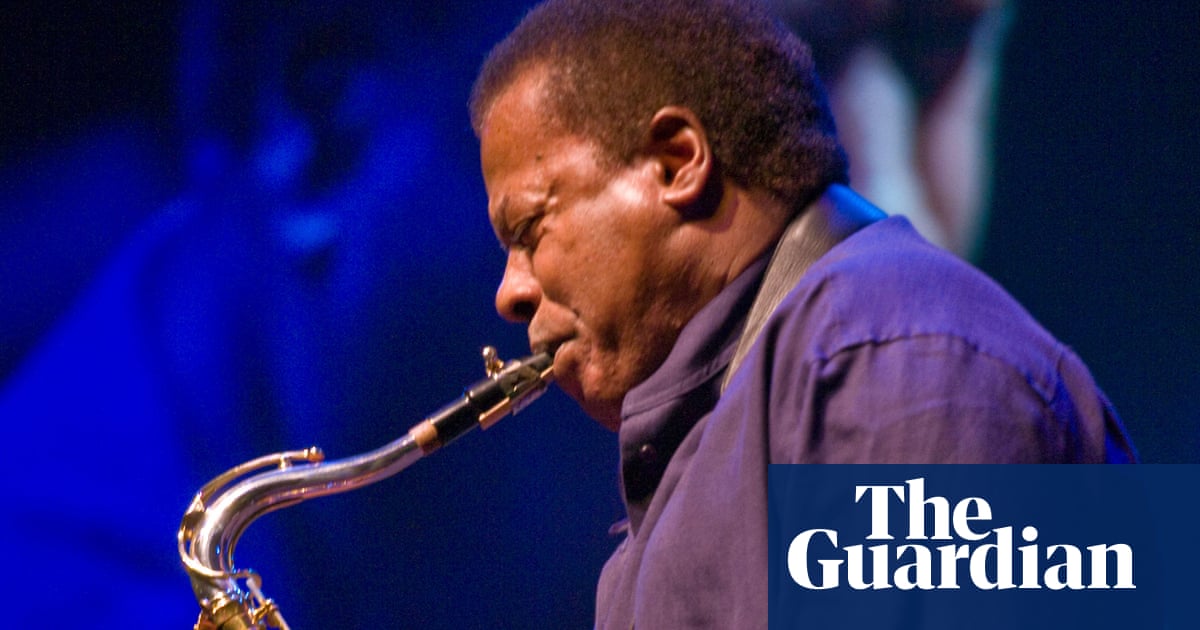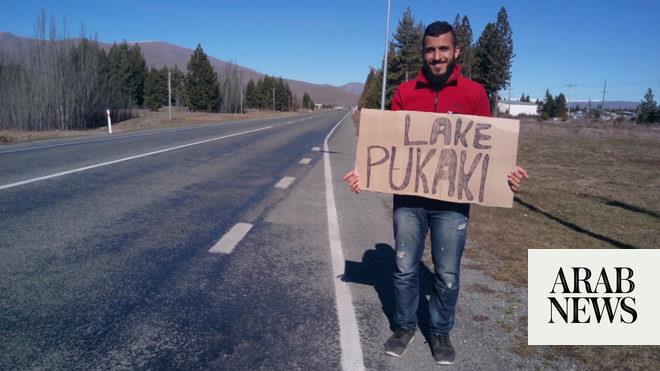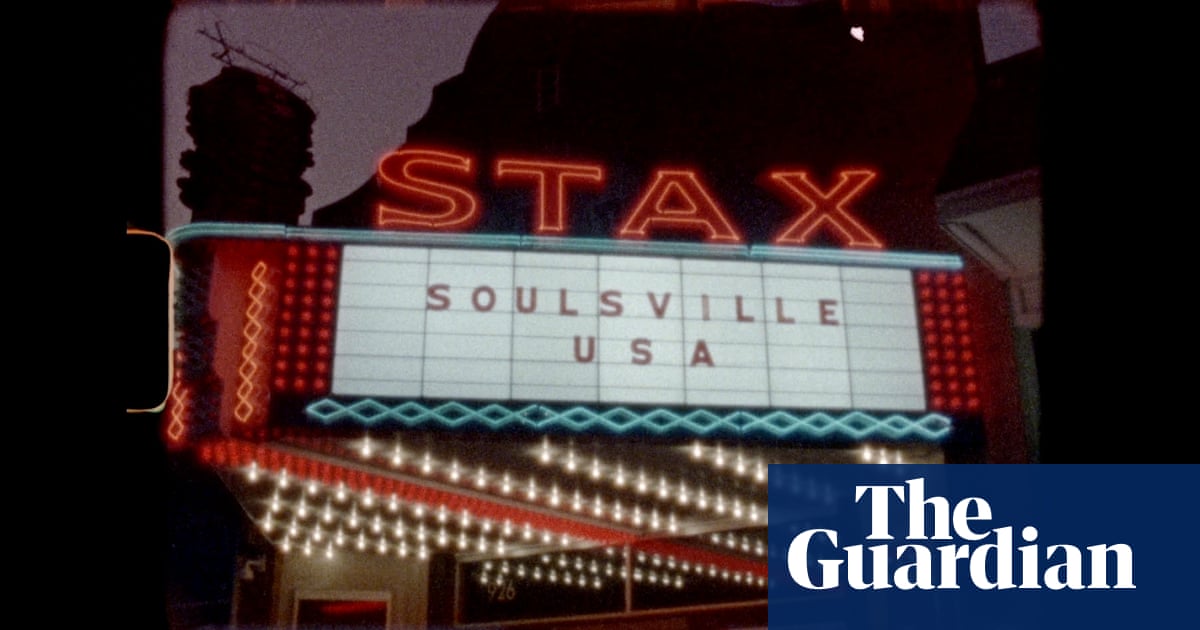
Dorsay Alavi met the saxophone virtuoso and composer Wayne Shorter in 1995, when she was hired by Verve Records to direct a video in support of his album High Life. So began a three-decade friendship that continued to blossom as she and her camera followed him on a 2002 concert tour, with “many conversations over the years”. But when she decided to make him the subject of a more intimately personal documentary – which premiered over the weekend on Amazon Prime as the three-part Wayne Shorter: Zero Gravity – she encountered a simple yet daunting stumbling block.
“It required some finesse to talk with him, especially with direct questions about musicians in the past or the tragedies of his life,” she tells the Guardian via Zoom from Los Angeles. “I had to prepare myself for Wayne to evade those questions, but there was a level of trust there … It never went how I thought it was going to go.” She describes Shorter as a “very generous” chatterbox motivated by genuine interest, all too happy to get the life story of takeout delivery drivers and telemarketers. But when she’d ask him about songwriting theory or his memories of collaborators, he’d deflect with a joke or a roundabout story that would put his emotion in indirect terms while still signaling the depth of his feeling. She soon found that it was more productive to discuss the ideology behind his elaborate melodies than their history or construction. “Wayne never liked to talk about the music,” Alavi says. “That just left everything else.”
Starting from the state of heightened consciousness referred to in the title, Alavi approaches jazz as a philosophical discipline and Shorter as one of its highest sages, each of his intricate solos an articulation of how he sees the world. The three-hour miniseries structures itself along biographical lines, from his childhood discovery of near-superhuman echoic memory to his twilight days spent as a charismatic elder statesman of his genre. But within that schematic, Alavi fit brain-expanding meditations on the spiritual aspect of improvisation, an exceptionally pure, direct outlet for one’s most candid self-expression.
“For me, it’s a story about how a man grew to greatness,” she says. “It’s not just a documentary about a jazz musician. Wayne used sound as a way to dialogue with all of his listeners. He spoke to you through it. It was invisible, but it transcended language. It was meant to inspire, to activate you, to rise above the mind, in a way. It was part of his beliefs that he could help people see the greatness in themselves when they heard his music. In many ways, his music was a vehicle for him to have a conversation with anyone who would listen.”
Alavi broke Zero Gravity into three “portals” that cover the major phases of Shorter’s career: his rise as an ace in the hole for bands led by Art Blakey and Miles Davis, his household-name heyday marred by grief, and his serene, tranquil present in a cluttered home studio. As Shorter lets his sax do his talking for him, we nonetheless learn of a divorce, a daughter taken by a seizure, and a second wife lost to a plane crash. But enduring enough hurt for several lifetimes has done nothing to put a damper on his buoyant spirit, quick to a well-worn laugh. “He was like a kid in a man’s body sometimes, like Peter Pan,” Alavi says. “Profound and childlike at the same time, an amazing combination. He liked meeting young people, hearing from them about music, movies they were into. A lot of times, if someone wanted to come meet Wayne, he’d sit them down with a movie and tell them what he liked about it. That’s how he liked to connect.”
Shorter practiced Nichiren Buddhism for much of his adult life, which Alavi sees as the foundation for his resilience and fortitude. The old jazz adage that “it’s about the notes you don’t play” has a paradoxical oneness in keeping with Buddha’s teachings, also reflected in Shorter’s notion that life extends far beyond the mortal plane. Alavi looked through an interdisciplinary lens in her quest to comprehend Shorter, bringing in astrophysicist Neil deGrasse Tyson to give context to his far-out notions that “there must be so much more than what we have on this planet”. The director met her subject on the astral plane by embellishing her cinematography with strokes of surrealism that “visually translate Wayne’s music and perspective with imagery”; a mirror effect puts Shorter in a duet with himself, and in one psychedelic passage, shifting polygons of color winnow his compositions down to their basest sensory essence. An instrumentalist doesn’t simply play jazz, but rather channel an energy with no name, something felt more than known.
“His spiritual belief system was at the core of a lot of what he did, but I think he was a natural philosopher from a very early age,” Alavi says. “He was always questioning things. He was a seeker. It was a natural progression, that he’d find Buddhism later in life. He was obstinate in his beliefs and unshakable in his faith. He also wanted you to question everything, like he did. Never take anything at face value.”
Alavi completed a four-hour cut of Zero Gravity back in 2018, and had the chance to show it to Shorter during some small industry screenings that got Brad Pitt and his production company Plan B on board. She and her producers spent two and a half additional years slimming down the run time and securing a deal with Amazon, just in time for the outbreak of Covid to force years of further delays. Shorter’s death earlier this year now casts a sad, elegiac shadow over a project blissfully unaware of its own epilogue. Alavi gets wistful as she talks about wishing Shorter could be in these interviews with her, making her laugh and think, but she appreciates the chance to deliver a portrait with some finality to it. “I see Wayne as an inconspicuous leader, who leads by example and inspiration rather than by insisting or preaching,” she says. “He wasn’t that dynamic, dominant hero type. He was gentle, thoughtful, mystical. Those people aren’t overt personalities, but they’re powerful all the same. I wanted to show people his power.”
The creed-first method that lets Alavi preserve music’s aura of mystique even in dissection likewise affords a measure of the inscrutable to a principled man. Shorter’s unparalleled brilliance defies explanation, an inbred talent bestowed on a select few. But in his interview footage, he emphasizes the importance of choice and conviction, his Buddhist tenet that we exist to grasp at experience and all the suffering that comes with it. To achieve technical excellence, which Shorter did on a level few have ever reached, can only get a person so far; the music needs to come from the soul.
“You can be born with a gift, you can have a special quality, but until you actually put that into practice every single day and nurture and build it, you won’t be great,” Alavi says. “You will throw that gift away. Wayne is an example of someone who worked very hard, from when he was a teenager to the day he died. Never stopped working.”
Wayne Shorter: Zero Gravity is now available on Amazon Prime












